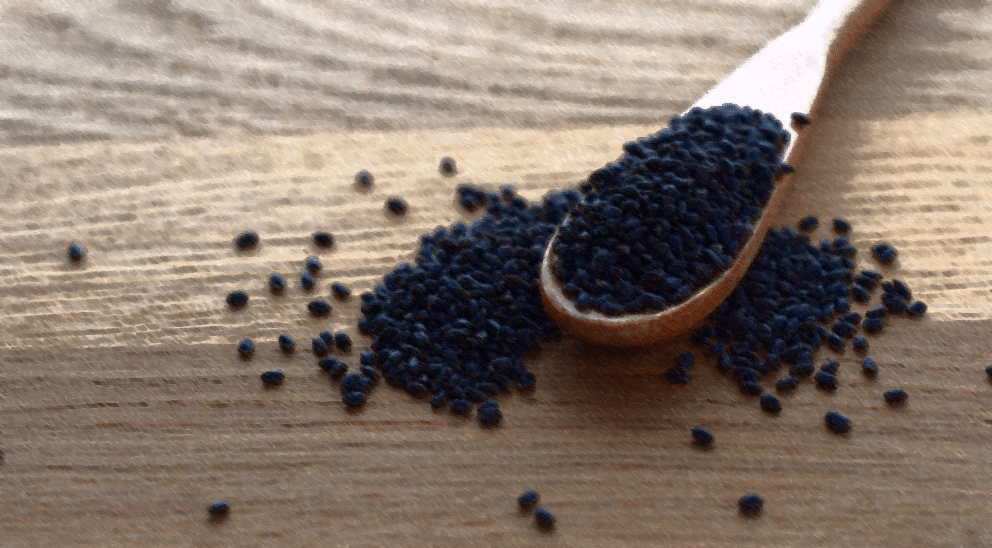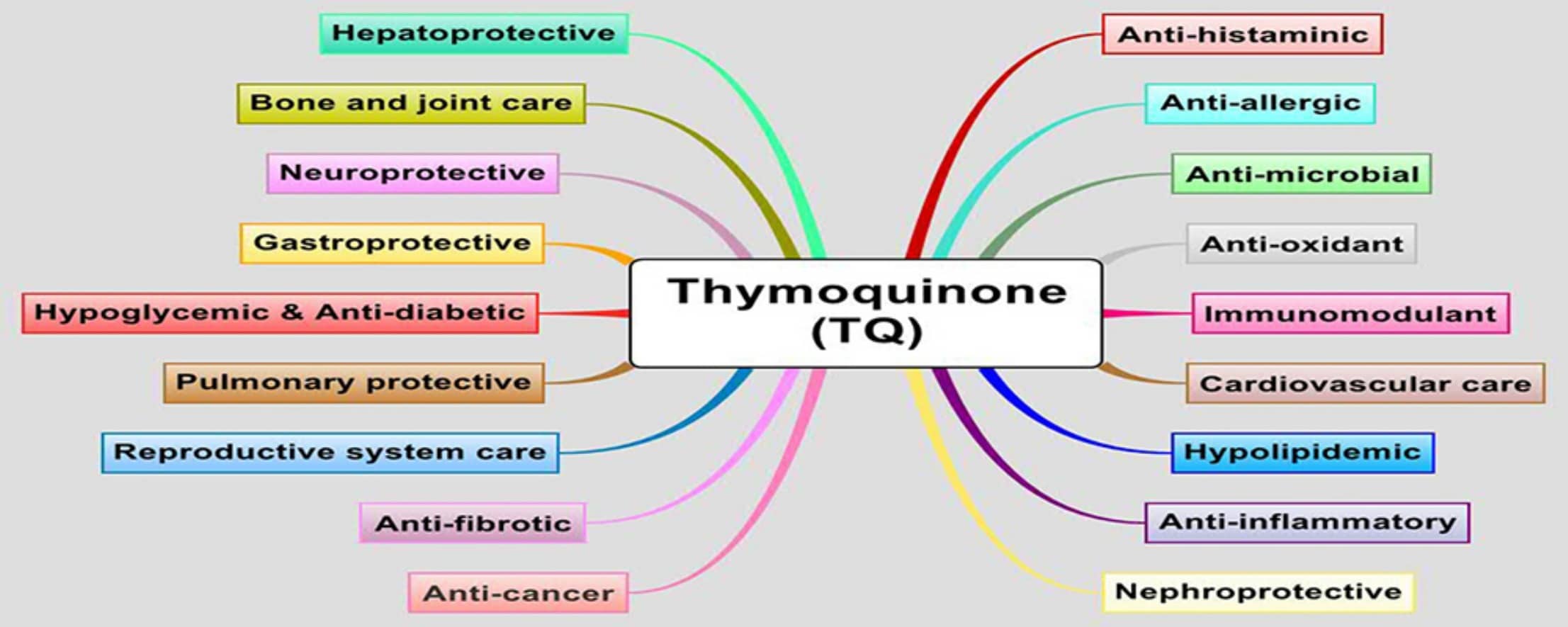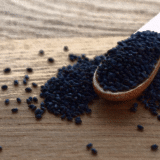Thymoquinone Benefits

Thymoquinone is a compound that has steadily been attracting the attention of both the ordinary person and the scientific community. Thymoquinone (TQ) is the scientific name for the compound contained in the Nigella sativa plant. The plant itself was used by ancient healers in past civilizations for hundreds of years. There’s also evidence of the plant in the tomb of King Tut. Due to the plant’s past, research is now being conducted on the various chemicals contained in the plant and how they benefit our bodies.
In the traditional sense, N. Sativa was used to treat various diseases including fever, allergies, headache, cough, parasites, toothache, inflammations, diabetes, and dizziness, among others. The N. Sativa is native to South West Asia and has since been moved to Northern Africa and Europe, where it has been cultivated and naturalized. The same plant is equally known for its black cumin seeds or simply black seed which acts as both a spice and condiment.
Thymoquinone is the primary bioactive component in black seed oil which comes from N. Sativa. There currently is promise in medical research that it does have the properties to help with multiple diseases.
Top 3 benefits of Thymoquinone
Recent studies show that N. Sativa can treat some of what the ancient healers had used it for. There is adequate research that supports thymoquinone is a compound that could be used as an emerging component in several drugs. That is thanks to its proven ability to act as an anti-inflammatory, anti-cancer chemical, antioxidant, cytotoxic, and hepatoprotective.
There is also a prevalent narrative in Muslim countries that N. Sativa is commonly consumed by cancer patients as part of a dietary supplement and even complementary alternative medicine. Let’s look at the top three areas where thymoquinone is showing promise in-depth.
Contains antioxidants
The nature of antioxidants is to neutralize harmful free radicals and also prevent cells from experiencing oxidative damage. In essence, they play a part in our health and the body’s ability to fight diseases. Given that TQ does contain antioxidants, it means that it may have the potential to protect against different kinds of chronic conditions, including diabetes, cancer, heart disease, and even obesity. There is still a need for more research to back up the initial findings that TQ would have the same benefit to the body.
May have cancer-fighting properties
Cancer is a devastating issue as the race to find a cure continues. With that said, people are looking toward preventative measures, with thymoquinone being one of the places that the medical field is looking at. The basis of the research is that since black seeds contain antioxidants, they may provide the ability to neutralize harmful free radicals that are known to contribute towards cancer. Currently, things are at the test tube phase of research, indicating that TQ may be able to kill or deactivate cancer cells.
Can aid and alleviate inflammation
Inflammation is often a sign that the body is fighting off or working to protect itself from infection or injury. When you have chronic inflammation, it can increase the likelihood of developing other diseases, including cancer, heart disease, and diabetes. The studies done thus far on TQ’s ability to reduce markers of inflammation and oxidative stress have been on a group of people with rheumatoid arthritis. The results show that there was a significant reduction in inflammation. Other studies have been carried out with rats and test tubes, both providing promising outcomes and reduced inflammation.
There is enough evidence to pursue the use of thymoquinone and black seeds in both medicine and one’s diet for individuals suffering from various ailments. Only time will tell if there will be widespread use of this compound.
Sources:
- https://www.ncbi.nlm.nih.gov/pmc/articles/PMC4387230/
- https://www.ncbi.nlm.nih.gov/pmc/articles/PMC3614697/
- https://www.health.harvard.edu/staying-healthy/understanding-acute-and-chronic-inflammation
- https://www.ncbi.nlm.nih.gov/pmc/articles/PMC4884216/




